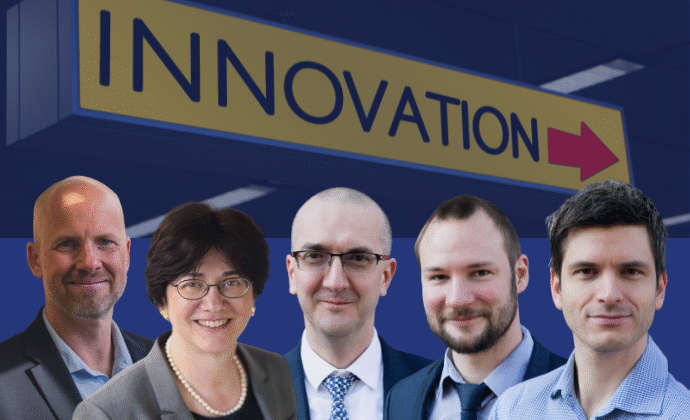Strengthening Innovation in Family and Owner-Led Businesses
How Social Connections and Trust Influence Product Development in SMEs
A new study published in the prestigious international scientific journal Entrepreneurship & Regional Development (Q1) provides insight into a longstanding question: Do strong family ties within ownership groups support innovation, or do they encourage inward-looking behavior that holds innovation back?
The study, Enhancing product innovativeness in SMEs: the role of owners’ bonding social capital, owners’ bridging behaviors, and mobilized social capital, draws on data from 286 Czech small and medium-sized enterprises (SMEs). The results show that the key is not only family cohesion and trust, but also—and above all—the ability of owners to extend their networks beyond the family circle and actively use the resources gained from external partners. The research team led by Lorraine M. Uhlaner consisted of Prof. Ing. et Ing. Ondřej Machek, MBA, Ph.D.; Doc. Ing. Aleš Kubíček, Ph.D.; Prof. Ing. Mgr. Martin Lukeš, Ph.D., and Prof. Ing. Jiří Hnilica, Ph.D. (many of whom form the team of the Centre for Family Business).
Why Social Capital Matters
In many small and medium-sized enterprises, especially family businesses, personal relationships and shared values are deeply embedded in daily operations. These ties form what researchers call bonding social capital. It is expressed through:
-
Close family involvement in the business
-
High levels of trust among owners and managers
-
A collective mindset that emphasizes mutual support
This strong internal solidarity can be a source of stability and confidence. However, it has also been viewed with caution, as it may limit openness to new ideas. This study helps clarify when bonding social capital is an advantage rather than a barrier.
A Two-Stage Perspective on How Networks Drive Innovation
To understand how internal relationships influence innovation, the researchers examined the role of networking in two stages:
-
Owners’ bridging behaviours
These are deliberate efforts by owners to reach beyond their familiar environment—connecting with new partners, experts, advisers, or business networks. -
Mobilized social capital
This reflects the firm’s ability to use the knowledge, contacts, and resources accessed through those external relationships.
By applying Hayes’ PROCESS analytical framework, it was examined how internal trust and cohesion shape owners’ willingness to build external connections, and how firms put those connections into practice to develop new products.
Key Findings
The research shows that:
-
Strong internal family ties do not directly increase innovation.
-
Instead, they create the foundation that encourages owners to confidently build new external relationships.
-
These bridging behaviours help the business access new information, perspectives, and opportunities.
-
The degree to which the firm actively uses these external inputs—its mobilized social capital—determines whether innovation improves.
What this means for SMEs
For owners and leaders of family-oriented or closely held firms, the message is clear:
- Nurture trust and shared purpose within the ownership group.
- Encourage proactive relationship-building beyond the company.
- Develop the organization’s ability to apply and integrate external knowledge.
Innovation grows when strong roots meet open branches.
Moving Forward
This study offers a new perspective that resolves previous contradictions about the role of family ties in innovation. When combined with active networking and strategic use of external resources, strong internal relationships become a powerful driver of product development and long-term competitiveness.
